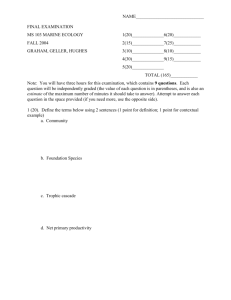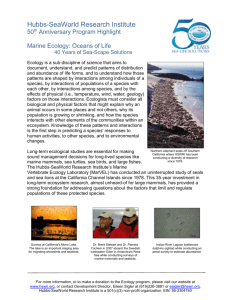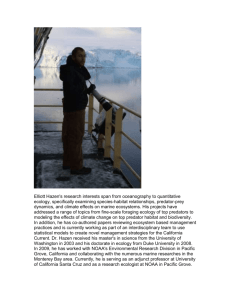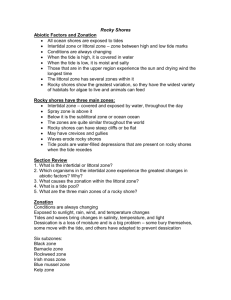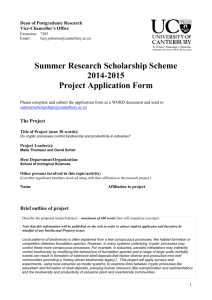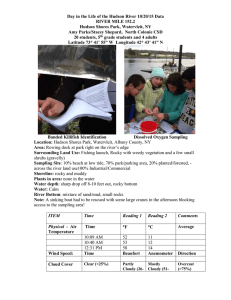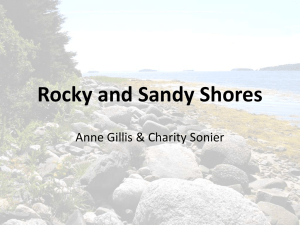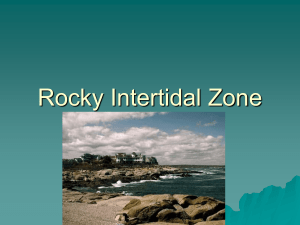The Project - University of Canterbury
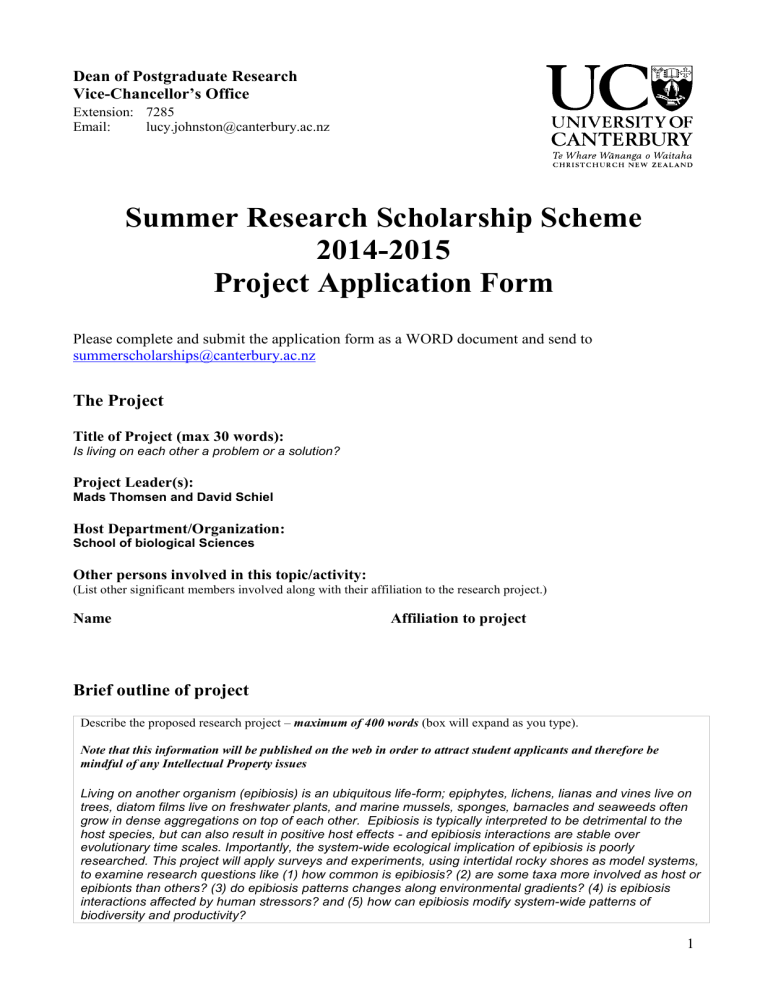
Dean of Postgraduate Research
Vice-Chancellor’s Office
Extension: 7285
Email: lucy.johnston@canterbury.ac.nz
Summer Research Scholarship Scheme
2014-2015
Project Application Form
Please complete and submit the application form as a WORD document and send to summerscholarships@canterbury.ac.nz
The Project
Title of Project (max 30 words):
Is living on each other a problem or a solution?
Project Leader(s):
Mads Thomsen and David Schiel
Host Department/Organization:
School of biological Sciences
Other persons involved in this topic/activity:
(List other significant members involved along with their affiliation to the research project.)
Name Affiliation to project
Brief outline of project
Describe the proposed research project – maximum of 400 words (box will expand as you type).
Note that this information will be published on the web in order to attract student applicants and therefore be mindful of any Intellectual Property issues
Living on another organism (epibiosis) is an ubiquitous life-form; epiphytes, lichens, lianas and vines live on trees, diatom films live on freshwater plants, and marine mussels, sponges, barnacles and seaweeds often grow in dense aggregations on top of each other. Epibiosis is typically interpreted to be detrimental to the host species, but can also result in positive host effects - and epibiosis interactions are stable over evolutionary time scales. Importantly, the system-wide ecological implication of epibiosis is poorly researched. This project will apply surveys and experiments, using intertidal rocky shores as model systems, to examine research questions like (1) how common is epibiosis? (2) are some taxa more involved as host or epibionts than others? (3) do epibiosis patterns changes along environmental gradients? (4) is epibiosis interactions affected by human stressors? and (5) how can epibiosis modify system-wide patterns of biodiversity and productivity?
1
If the project involves work away from the University campus (e.g., at fieldwork sites) please detail all locations.
This project involve field work on rocky shores; possible field sites include rocky shores near Kaikoura
(daytrips and/or staying at the field station) and rocky shores around Banks Peninsula (daytrips).
If the student be required to work outside of normal university hours (8am-5pm) please provide details
The project will involve field work carried out during low tide. The student should therefore be prepared to do occasional field work early morning and early evening.
Benefits student will gain from involvement in the project
Describe the research experience and skills that the student will acquire through involvement in this research project – maximum of 100 words.
The student will be part of a new larger exciting project about positive species interactions in marine systems, learn methods in marine ecology and data analysis, collaborate with highly motivated students and faculty, learn to design and carry out own surveys and experiments and, if the collected data allows for it, be involved in writing and submitting a scientific publication.
Specific student requirements
Please provide details of all requirements you have for the student to work on this project – for example, if specific courses/experience are necessary.
Good background in general ecology and marine ecology.
Drivers licence.
Health and ability to conduct independent field work in intertidal marine systems.
Motivation-driven and loving science and research.
We prioritize applicants from students with a clear interest to continue a master project related to this research program.
2
